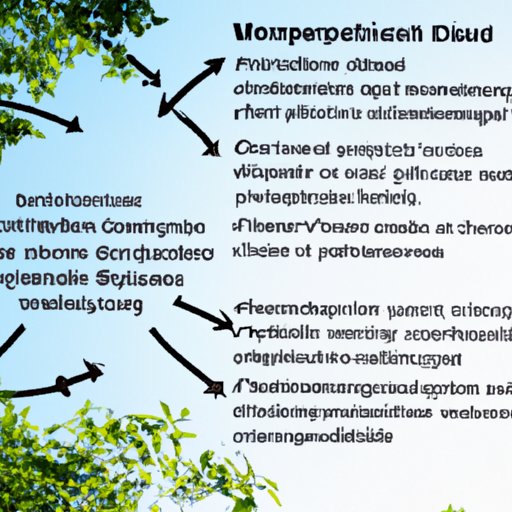Introduction
Behavior science is a multidisciplinary field of study that examines the biological, psychological, and environmental influences on human behavior. It draws from a range of disciplines, including cognitive psychology, neuroscience, sociology, anthropology, and genetics, to explore the various factors that shape our behavior. In this article, we will explore the basics of behavior science, its major theories, and its applications in different fields.

Exploring the Basics of Behavior Science
Behavior science is an interdisciplinary field that seeks to understand how biological, psychological, and environmental factors interact to influence human behavior. According to the American Psychological Association, “behavior science is the scientific study of human behavior, including its origins, development, organization, and regulation.”
Behavior science has its roots in classical conditioning, which was first proposed by Russian physiologist Ivan Pavlov in the early 20th century. This theory suggests that behavior can be modified through the use of positive and negative reinforcement. Other major theories within behavior science include operant conditioning, social learning theory, and cognitive behavioral therapy.
Understanding the Intersection of Psychology and Neuroscience in Behavior Science
Cognitive psychology plays a critical role in behavior science, as it focuses on understanding how people process, store, and retrieve information. By understanding how people think, feel, and act, cognitive psychologists are able to develop interventions that can help modify behaviors. For example, cognitive-behavioral therapy (CBT) is a form of psychotherapy that combines elements of cognitive psychology with behavior modification techniques to help individuals overcome challenges such as anxiety, depression, and addiction.
In addition to psychology, neuroscience also plays an important role in behavior science. Neuroscientists study the structure and function of the brain and nervous system to gain a better understanding of how these systems interact with behavior. For example, research has shown that certain areas of the brain are associated with specific behaviors, such as aggression or impulsive behavior. By studying the neural pathways and networks involved in these behaviors, neuroscientists can develop interventions that can help modify them.

Uncovering the Role of Environment in Shaping Behavior
The environment also plays a critical role in shaping behavior. Socialization is a key factor in determining how we behave, as it helps shape our values, beliefs, and attitudes. Our family and peers can have a significant impact on our behavior, as they provide us with models of acceptable behavior and serve as sources of feedback and reinforcement. Additionally, the media can also influence our behavior, as it often presents us with images and messages that can shape our ideas about what is socially acceptable.

Examining the Impact of Social Factors on Behavior
Social factors play a critical role in shaping behavior. Culture can have a profound effect on behavior, as different cultures may have different values and beliefs that can influence how individuals behave. Additionally, social status can also affect behavior, as those with higher social status may have access to more resources and opportunities that can shape their behavior.
Investigating the Relationship between Genetics and Behavior
Genetics also plays an important role in behavior science. Research has shown that genes can influence behavior by influencing the development of the brain and nervous system. Additionally, epigenetics, which is the study of how environmental factors can alter gene expression, can also play a role in shaping behavior. For example, research has shown that certain environmental factors, such as stress, can lead to changes in gene expression that can influence behavior.
Exploring the Applications of Behavior Science
Behavior science has a wide range of applications in different fields. In education, behavior science can be used to understand how students learn and develop, as well as to develop strategies for improving student performance. Additionally, behavior science can be used to develop interventions for mental health conditions, such as anxiety and depression, as well as to understand and treat addiction.

Investigating the Role of Technology in Behavior Science
Technology also plays an important role in behavior science. Advances in technology have enabled researchers to study behavior in greater detail by using tools such as fMRI and EEG. Additionally, technology has also allowed researchers to study the effects of technology on behavior, such as the impact of social media on our emotions and behavior.
Conclusion
Behavior science is a complex field of study that seeks to understand the biological, psychological, and environmental influences on human behavior. It draws from a range of disciplines, including cognitive psychology, neuroscience, sociology, anthropology, and genetics, to explore the various factors that shape our behavior. Additionally, behavior science has a wide range of applications, from education to mental health, and its importance is only increasing as technology continues to advance.
In summary, behavior science is a fascinating field of study that has the potential to revolutionize our understanding of human behavior. As we continue to explore the intersection of psychology, neuroscience, and environment in shaping behavior, we will gain a greater understanding of how to modify and improve behavior.
(Note: Is this article not meeting your expectations? Do you have knowledge or insights to share? Unlock new opportunities and expand your reach by joining our authors team. Click Registration to join us and share your expertise with our readers.)
